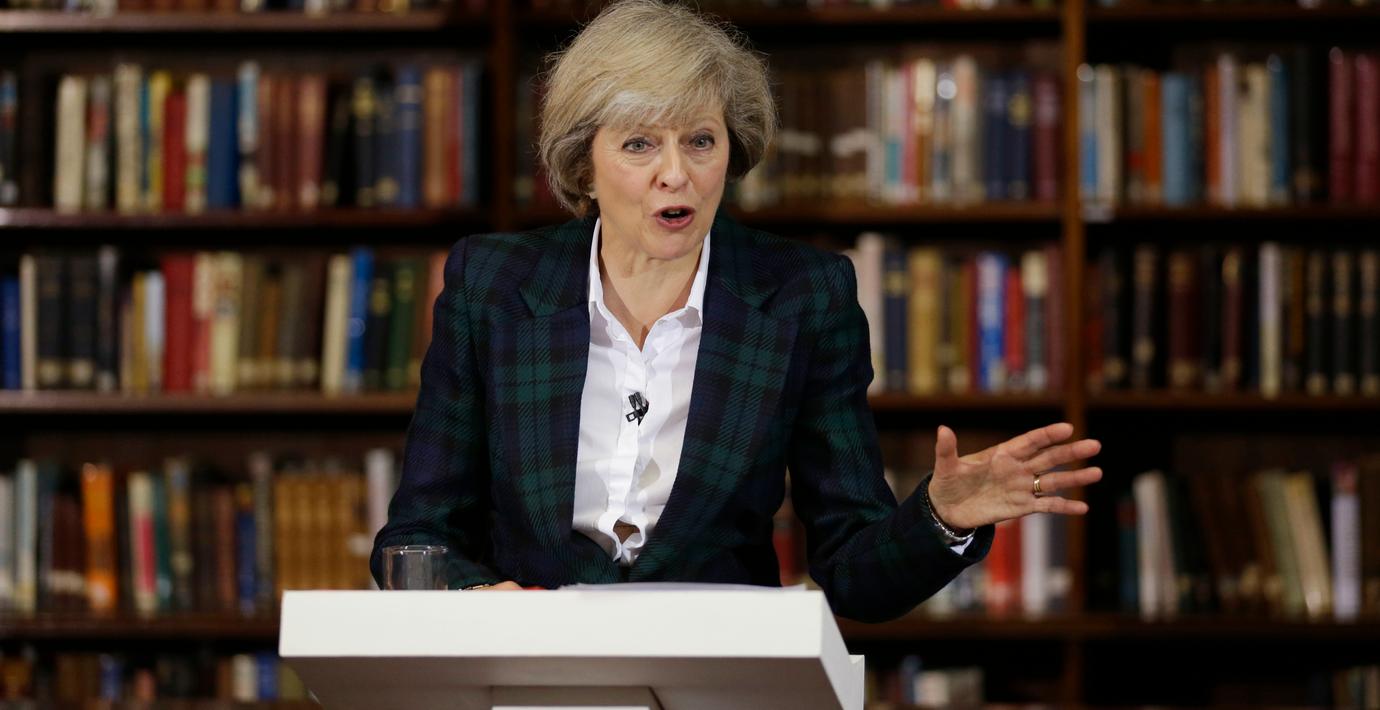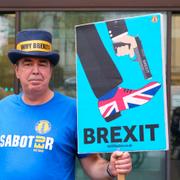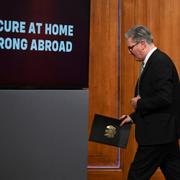
Brexitdepartement dubblas inför förhandlingar
Den brittiska regeringens departement för hanteringen av brexit, Department of Exiting the EU (Dexeu), ska bli dubbelt så stort. Nu inleds en rekryteringskampanj, skriver Financial Times. 200 personer har redan knutits till departementet men ytterligare 200 personer behövs för att klara av de fördjupade förhandlingarna om utträdet, enligt tidningens källor. Särskilt behöver Dexeu "unga och skärpta" nyexaminerade.
bakgrund
Brexit
Wikipedia (en)
The United Kingdom European Union membership referendum, also known as the EU referendum and the Brexit referendum, was a referendum that took place on Thursday 23 June 2016 in the United Kingdom and Gibraltar to gauge support for the country's continued membership in the European Union. The referendum result was not legally binding. The referendum resulted in an overall vote to leave the EU, by 51.9% on a national turnout of 72% making it the highest ever for a UK-wide referendum and also the highest turnout for any national vote since the 1992 UK General Election. The result was split between the constituent countries of the United Kingdom, with a majority in England and Wales voting to leave, and a majority in Scotland and Northern Ireland, voting to remain. The British Overseas Territory of Gibraltar also voted to remain. To start the process to leave the EU, which is expected to take several years, the British government will have to invoke Article 50 of the Treaty on European Union, but it has not yet done so.
Membership of the EU and its predecessors had long been a topic of debate in the United Kingdom. The country joined the European Economic Community (EEC, or "Common Market") in 1973. A referendum on continued EEC membership was held in 1975, and it was approved by 67% of voters. In accordance with a Conservative Party manifesto commitment, the legal basis for a referendum was established by the UK Parliament through the European Union Referendum Act 2015.
Britain Stronger in Europe was the official group campaigning for the UK to remain in the EU and was led by the Prime Minister David Cameron and Chancellor George Osborne. Vote Leave was the official group campaigning for the UK to leave the EU and was fronted by the Conservative MPs Boris Johnson and Michael Gove. Other campaign groups, political parties, businesses, trade unions, newspapers and prominent individuals were also involved, and each side had supporters from across the political spectrum.
Financial markets reacted negatively in the immediate aftermath of the result. Investors in worldwide stock markets lost more than the equivalent of 2 trillion United States dollars on 24 June 2016, making it the worst single-day loss in history, in absolute terms. The market losses amounted to 3 trillion US dollars by 27 June. The value of the pound sterling against the US dollar fell to a 31-year low. The UK's and the EU's sovereign debt credit rating was also lowered by Standard & Poor's. By 29 June, the markets had returned to growth and the value of the pound had begun to rise.
Immediately following the result, the Prime Minister David Cameron announced he would resign, having campaigned unsuccessfully for a "remain" vote on behalf of Britain Stronger in Europe and HM Government. He was succeeded by Theresa May on 13 July. The opposition Labour Party also faces a leadership challenge as a result of the EU referendum. In response to the result, the Scottish Government announced that it would plan for a possible second referendum on independence from the United Kingdom, and announced that it would like to "explore all the possible options to protect Scotland's place in the EU". Meanwhile, Nigel Farage, leader of the anti-EU UKIP stood down after his party's long-term ambition had been accomplished.
Omni är politiskt obundna och oberoende. Vi strävar efter att ge fler perspektiv på nyheterna. Har du frågor eller synpunkter kring vår rapportering? Kontakta redaktionen



